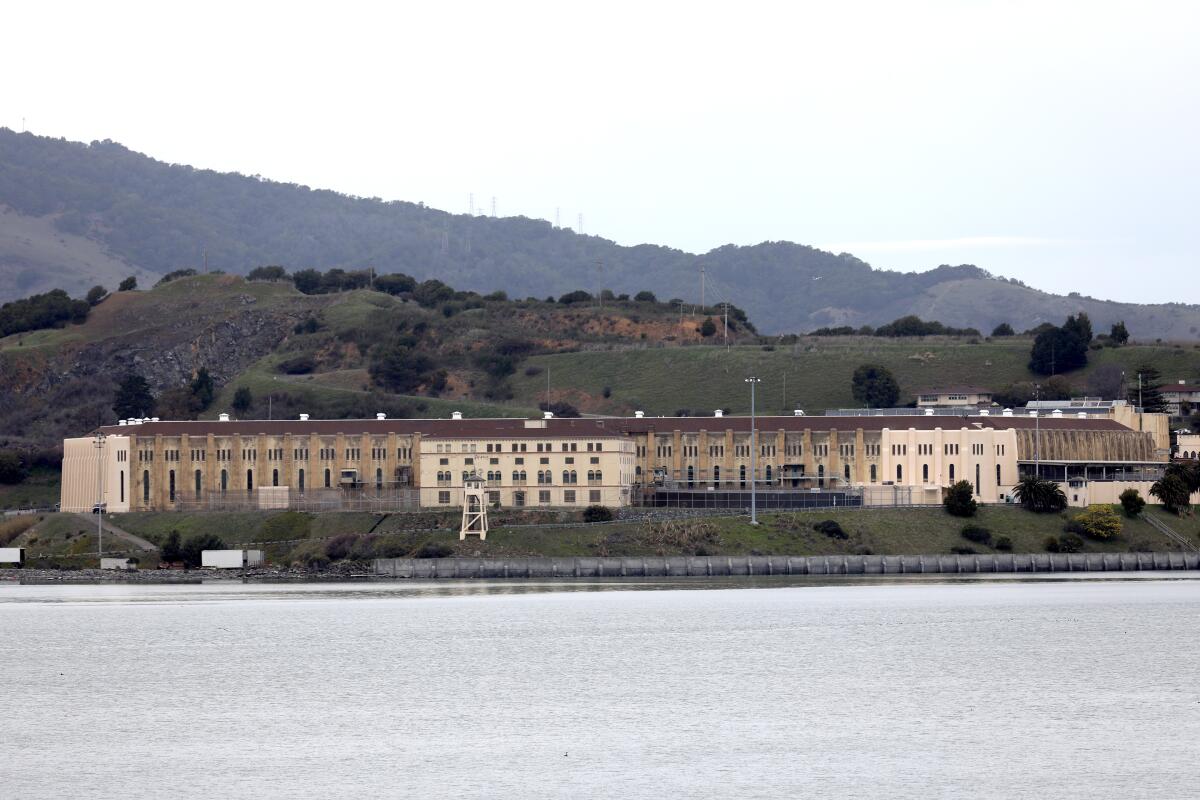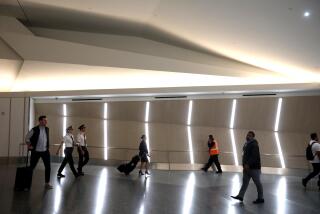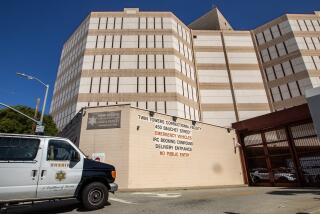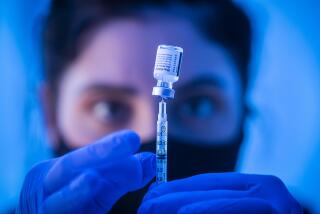40% of inmates in California’s corrections system have been vaccinated for COVID-19

- Share via
About 40% of people in the custody of California’s corrections system have received the COVID-19 vaccine, a figure praised by prison advocates who say that only a fraction of the state’s vaccine supply is needed to protect a population that’s among the most vulnerable to the virus.
The vaccinations began Dec. 22 at the California Health Care Facility in Stockton, according to California Correctional Health Care Services. As of Monday, 37,588 incarcerated individuals and 24,959 staff members had received the vaccine. More than 94,000 people are in the custody of the California Department of Corrections and Rehabilitation.
“We’re pleased at the pace that they have been going at and have constantly been urging the governor to continue that pace,” said Sara Norman, managing attorney for the Berkeley-based Prison Law Office. “Correction facilities have proven to be deadly. Like nursing homes, they are on top of the list of the deadliest places to be in this country.”
Across the state, 211 prisoners and 26 corrections staff members have died of complications from COVID-19. Social distancing is difficult in crowded settings like prisons, and the virus has many chances to enter as staff come and go.
During the pandemic, the state corrections agency has faced accusations that it has failed to enforce safety protocols among staffers and guards. A recent report from the California Office of the Inspector General found that corrections officials had ignored the concerns of health workers and pressured them in May to transfer 189 potentially infected inmates from a Chino men’s prison to San Quentin State Prison, leading to a deadly outbreak there.
By the end of August, 2,237 inmates and 277 staff members had been infected at San Quentin, according to the report. Twenty-eight prisoners and one staffer died.
As of Feb. 8, 76% of all incarcerated people within the state corrections system had either received at least one dose of the vaccine or had been infected with the virus, according to a filing submitted as part of the enforcement proceedings for Plata vs. Newsom, a long-running lawsuit against the state of California related to issues of access to medical care in prisons.
The filing said vaccines have been offered to patients in the corrections system’s skilled nursing facilities or prison medical institutions. It said vaccinations have been prioritized for patients ages 65 and older, followed by those who meet certain COVID-19 risk factors, some psychiatric patients, patients who require a higher level of care and prisoners with jobs.
Almost 70% of incarcerated people who have been offered the vaccine have accepted it, according to the filing, which also said employees who receive the vaccine must continue to wear personal protective equipment and practice social distancing.
Sharon Dolovich, a professor at the UCLA School of Law who directs its COVID-19 Behind Bars Data Project, which tracks the pandemic in prisons and jails nationwide, called the number of prisoners vaccinated in California “incredibly high.”
“Generally speaking, prison systems have been slow to bring the vaccine to incarcerated people,” she said, explaining that many states are only vaccinating prison staff.
Dolovich noted that dozens of cases of the more transmissible coronavirus variant from the U.K. known as B.1.1.7 have been identified at a prison in Michigan.
“If you put an accelerated level of contagiousness into a prison environment, the effects are going to be devastating,” she said. “We are in a race against time. Now that the new variant is here, the race is even more urgent.”
Vanessa Nelson-Sloane, director and co-founder of inmate advocacy group Life Support Alliance, was also pleased with the high number of vaccinations but said the prison system should do more to address the skepticism some inmates have toward the vaccine. She said her organization has received letters from prisoners who ask if the vaccine is safe and some who are not sure if they have tested positive for the virus.
The California Department of Corrections and Rehabilitation has told The Times that individuals are notified of a positive test result when they are asked to move to temporary housing for medical isolation. But Nelson-Sloane and other advocates say prisoners are not always given documentation showing they have tested positive, resulting in some refusing to move because they are worried about being in medical isolation with infected people. Nelson-Sloane said this also means prisoners don’t know whether they should get vaccinated.
“When the vaccine comes along, they’re like, ‘I don’t know, do I need this?’” she said. “If they were just to make sure these guys got information [on test results], I think their acceptance rate of the vaccine would be even higher.”
More to Read
Sign up for Essential California
The most important California stories and recommendations in your inbox every morning.
You may occasionally receive promotional content from the Los Angeles Times.











